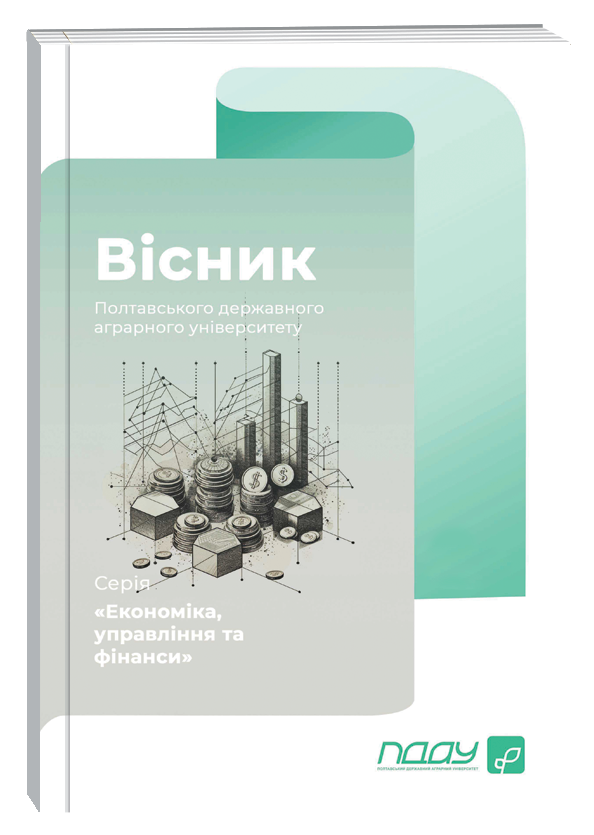DEVELOPMENT OF WINE TOURISM IN CENTRAL EUROPEAN COUNTRIES
DOI:
https://doi.org/10.32782/pdau.eco.2025.3.4Keywords:
tourism, enogastronomy, sustainable tourism, locality, winemakingAbstract
The article analyzes the development of wine tourism in the regions of Central Europe, specifically in Poland, the Czech Republic, Slovakia, and Hungary. It is indicated that wine tourism is a promising direction for the development of the tourist services market. It is noted that wine tourism is a thematic type of tourism activity related to familiarization with the history, production technology, and culture of wine consumption in a particular region, as well as tasting wines directly from the producers. It has been established that in recent years, tourists’ interest in thematic tourism, particularly wine tourism, has been increasing. During the research, winemaking practices within the tourism business system were examined. In particular, it was determined that winemaking, as a tourist resource, combines cultural heritage, gastronomy, and sustainable development strategies. A comparative analysis of winemaking regions in Central Europe allowed not only to compare the current state of wine tourism in various Central European countries but also to identify the most successful practices that can be adapted in other regions. Current trends in eсgastronomic tourism are presented, including slow tourism, locality, and organic production. The influence of innovative forms of tourism activities on the attractiveness of destinations and the engagement of international tourists was defined. In the course of writing the article, the authors reviewed European experiences in the development of wine tourism with the aim of applying such practices in Ukraine. It is summarized that each country develops its unique model approach to ecotourism, and together they form a multifaceted map of Central Europe, where wine becomes the key to understanding local identity, traditions, and future opportunities. This multidisciplinary resource already today contributes to strengthening local economies, preserving cultural heritage, and enhancing the tourist attractiveness of the region on the global stage.
References
Kozhukhіvska R., Parubok N., Petrenko N., Podzihun S., Udovenko I. Methods of assessment of efficiency of creating regional innovative clusters for dynamic development of economics. Investment Management and Financial Innovations. 2017. № 14(3). Р. 302-312. DOI: https://doi.org/10.21511/imfi.14(3-2).2017.01
Іванов С. В., Домарецький В. О., Басюк Д. І. Винний туризм. Кам’янець-Подільський : Сисин О.В., 2012. 472 с.
Винний туризм. Вікіпедія – вільна енциклопедія. 2025. URL: https://uk.wikipedia.org.wiki Винний_туризм (дата звернення: 09.03.2025).
Industries & Markets. Statista. 2025. URL: https://www.statista.com/studies-and-reports/industries-and-markets (дата звернення: 09.03.2025).
Горшкова Л. О. Розвиток винного туризму як спеціалізованого виду туристичної діяльності. Науковий вісник Ужгородського національного університету. 2018. Вип. 17, Ч. 1. С. 68-71.
Chinnici G. Wine tourism and sustainability in Europe. Sustainability. 2018. №10(11). Р. 4106.
Pabian A. Enotourism in Poland – new directions of tourism development. Turystyka i Rozwój Regionalny. 2020. № 14. Р. 75-82.
Hall C. M., Sharples L. Food and Wine Festivals and Events Around the World. Oxford: Butterworth-Heinemann, 2008. 404 р.
Kovács B. Wine and identity in Hungarian Tokaj. Central European Journal of Regional Development. 2022. 287 р.
Wine Routes in South Moravia. Czech Tourism. 2024. URL: https://www.czechtourism.com (дата звернення: 09.03.2025).
Štefko R., Bavorová M. Wine Tourism Development in Slovakia: The Role of Regional Marketing. Acta Universitatis Agriculturae et Silviculturae Mendelianae Brunensis. 2015. №63(5). Р. 1599-1607.
Kozhukhіvska, R., Parubok, N., Petrenko, N., Podzihun, S., & Udovenko, I. (2017). Methods of assessment of efficiency of creating regional innovative clusters for dynamic development of economics. Investment Management and Financial Innovations, 14(3), 302-312. DOI: https://doi.org/10.21511/imfi.14(3-2).2017.01
Ivanov, S.V ., Domaretskyi, V. O., & Basiuk, D. I. (2012). Vynnyi turyzm [Wine Tourism]. Kamianets-Podilskyi: Sysyn O.V. [in Ukrainian]
Wikipedia – the free encyclopedia. Vynnyi turyzm. URL: https://uk.wikipedia.org.wikiVynnyi_turyzm (accessed: 09.03.2025) [in Ukrainian]
Statista. Industries & Markets. URL: https://www.statista.com/studies-and-reports/industries-and-markets (data zvernennia: 09.03.2025)
Horshkova, L.O. (2018). Rozvytok vynnoho turyzmu yak spetsializovanoho vydu turystychnoi diialnosti [Development of wine tourism as a specialized type of tourist activity]. Naukovyi visnyk Uzhhorodskoho natsionalnoho universytetu – Scientific Bulletin of Uzhhorod National University, 17, 1, 68-71 [in Ukrainian].
Chinnici, G. (2018). Wine tourism and sustainability in Europe. Sustainability, 10(11), 4106.
Pabian, A. (2020). Enotourism in Poland – new directions of tourism development. Turystyka i Rozwój Regionalny, 14, 75-82.
Hall, C. M., & Sharples, L. (2008). Food and Wine Festivals and Events Around the World. Oxford: Butterworth-Heinemann.
Kovács, B. (2022). Wine and identity in Hungarian Tokaj. Central European Journal of Regional Development, 287.
Czech Tourism. Wine Routes in South Moravia. URL: https://www.czechtourism.com (accessed: 09.03.2025)
Štefko, R., & Bavorová, M. (2015). Wine Tourism Development in Slovakia: The Role of Regional Marketing. Acta Universitatis Agriculturae et Silviculturae Mendelianae Brunensis, 63(5), 1599-1607.



